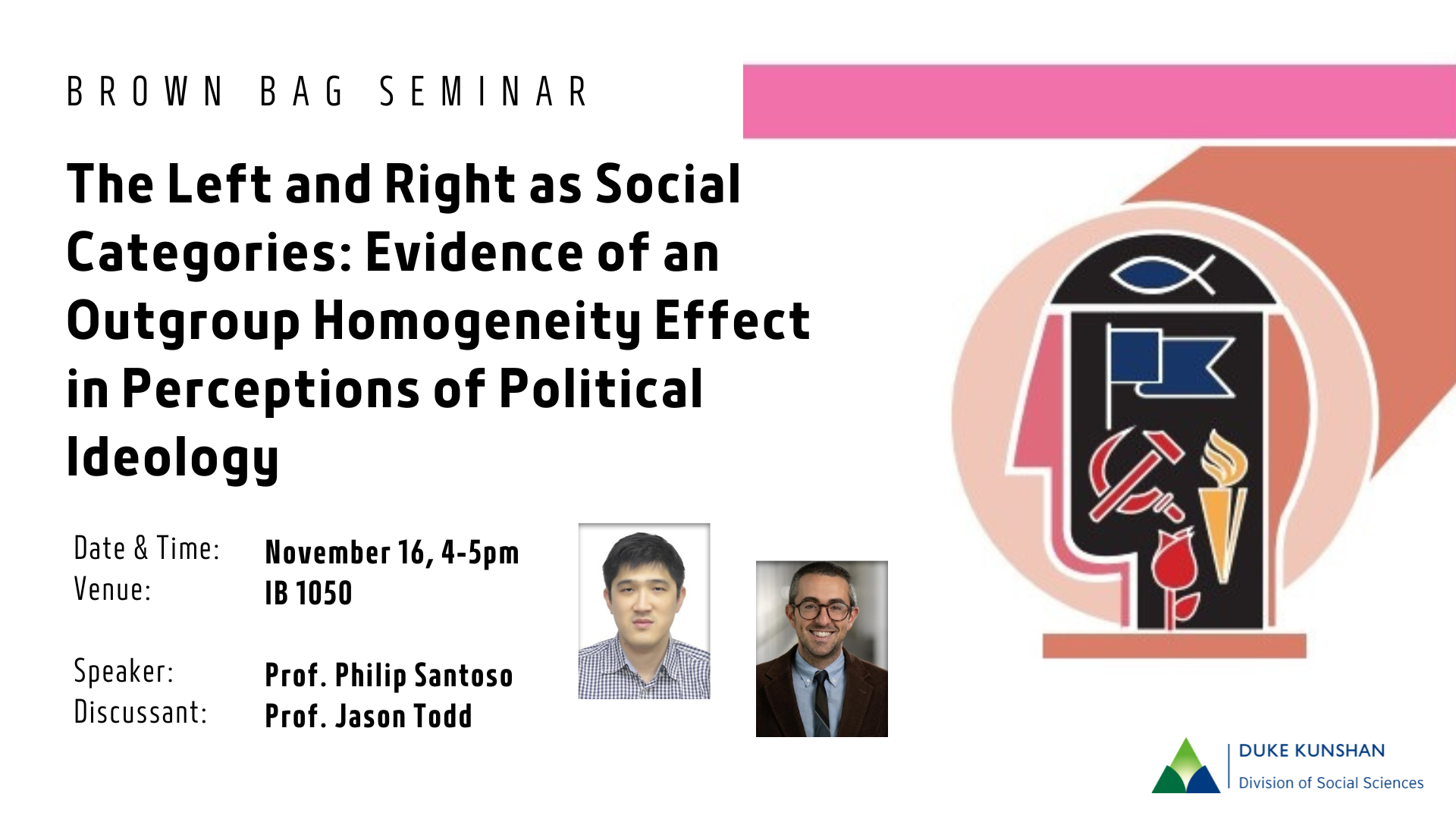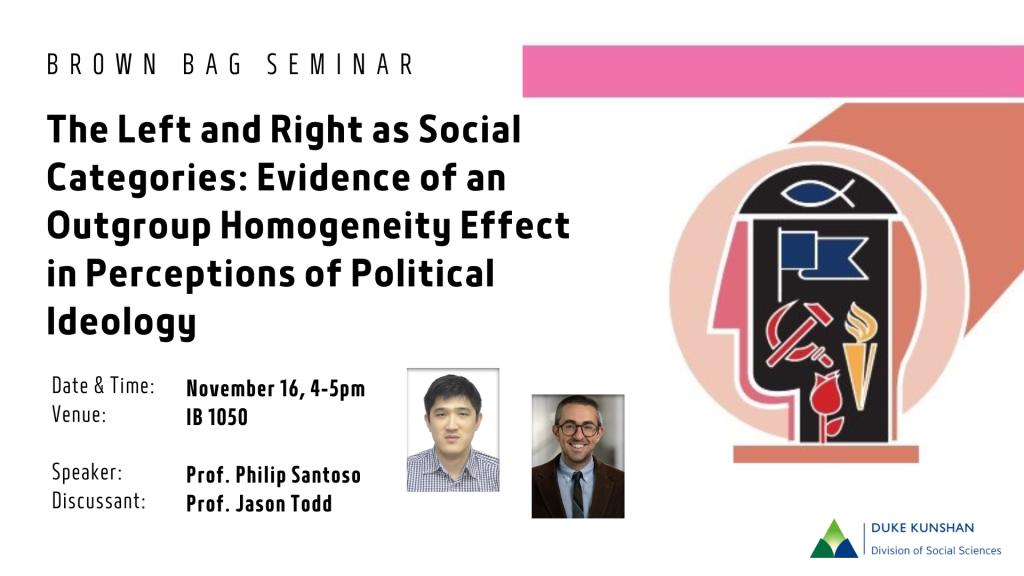
The Left and Right as Social Categories: Evidence of an Outgroup Homogeneity Effect in Perceptions of Political Id
Abstract:
Clinically, COVID-19 is more likely to cause serious medical consequences among the elderly. Previous studies have shown that intergenerational transmission plays a key role in COVID-19-related infection and fatality. This paper utilizes two large-scale multinational surveys to shed light on the importance of family ties on infection prevention behaviors. In particular, we constructed country-level strength of family ties measure with emphasis on children’s view of their parents using World Value Survey (WVS). And we elicited health behavior attitudes from individual responses from PsyCorona survey, a longitudinal study captured individual attitudes and behaviors started in the early phase of the COVID-19 pandemic (March
2020) until May 2022 involving 93 countries. We find that in countries and regions where family ties are stronger, individuals are more willing to uptake non-pharmaceutical interventions, including avoiding crowded places and self-quarantine, as well as vaccines to limit the spread of viruses. Moreover, the family ties effect is significant among the younger population such that they are more supportive of mandatory vaccination. This effect is salient and persistent throughout the early phase of the pandemic, especially before the global COVID-19 vaccine coverage reaches 50%. Our results are robust across several specifications of family.




